Finding the best apps on Google's Chromecast can be ... well, less than enjoyable. Despite it being the cheapest way to get your TV connected to the biggest streaming services (and now one of the best-looking since the introduction of the Chromecast Ultra), Google's little streaming dongle isn't known for having the most user-friendly content store.
Once upon a time that was because the tiny streaming puck didn't have a ton of apps that supported it and the ones that did were sort of tucked away inside the App Store. But, thankfully, over time more and more services have added the ability to cast. Too bad more choice makes finding the good apps even harder.
But that's where we come in.
Whether you're looking to stream some great new shows and movies, play a game or two with a friend on the TV or start a house party with some tunes, we've found some of the best apps to do just that.
Watch the video below to learn how to stream to a TV using a Chromecast from an iOS or Android device.
If you want the most essential app for your new Chromecast, you don't have to look far. The Google Home app (formerly known as the Chromecast app) has always been a staple of the platform, but now it's more versatile than ever thanks to built-in universal search, content discovery and app recommendations. The app will also be your primary way to add more than one device if, say, you buy a second Chromecast for the upstairs bedroom.
The app itself is free, which is good because you need it to setup the device.
Netflix is the penultimate Chromecast-enabled app. Tossing a TV show from your phone or mobile device is as simple as hitting the Cast button, and the results are near instantaneous. Offering hundreds of TV shows and movies as well as some of the best original programming this side of a premium cable subscription, Netflix should be your first stop on the road to building your Chromecast app collection.
While the app itself is free on iOS and Android, you'll need to be a Netflix subscriber in order to stream content. Plans start at $8.99/£6.99 a month.
This is a two-fer. Before HBO Now hit the scene, HBO Go was a fantastic way to stream some of your favorite HBO shows to the big screen. There was just one problem with it: HBO Go required a cable subscription.It wasn't until HBO Now was announced that our eyes were opened to the bigger picture.
As a standalone streaming service like Netflix and Hulu, HBO Now unshackled itself premium cable packages, allowing users to watch shows like Game of Thrones and Silicon Valley without buying a whole cable package. After its short, three-month exclusivity contract with Apple came to a close in August 2015, it rocketed to the top as one of the best Chromecast-compatible streaming apps out there. All that said, if you've got a cable subscription with HBO already, HBO Go is still a fantastic functioning Chromecast app, too.
Like Netflix, the HBO Now app is free, but a subscription to the service costs $15/£9.50 a month. (Currently unavailable in Australia.)
Subscription services like Netflix and Amazon Prime Instant Video are great in certain scenarios: because they're all you-can-stream, you never need to open up your wallet in between seasons. As a trade-off, however, you don't have the latest shows and movies at your fingertips. For that, we recommend the cross-platform compatible Google Play Movies & TV.
Using your Google account, you can instantly purchase and watch anything on the Play Store (think movies and TV shows from recently released blockbusters to videophile classics) without needing to download the content on your mobile device. Couple that with an easy-to-understand interface and seamless Chromecast compatibility, and the Google Play app quickly becomes the best piecemeal video service on either platform.
Google Play Movies & TV is free to download on both iOS and Android.
Even the stingiest of streamers can appreciate YouTube's fantastic and free Chromecast-enabled mobile app. It's interface is simplistically designed, just like the Chromecast itself, so it's only a matter of seconds from when you find a funny video until it's broadcast on your big screen.
As much as we love videos of puppies, though, when it's time to get back to watching real TV, we choose YouTube TV - the new live TV streaming service from YouTube. Like Sling TV or PlayStation Vue, YouTube TV allows you to watch cable TV all without a contract or expensive cable equipment. Not only is it a pretty great cable alternative, but it's a darn good Chromecast app, too.
YouTube is free to download on both iOS and Android. YouTube TV costs $35 a month, and is available on PC, iOS and Android.
Once upon a time, we might've recommended that you download Rdio as your go-to Chromecast music streaming app. Unfortunately, however, the music streaming gods saw fit to cast Rdio into the abyss and, for awhile, the world was audio-less. But that was before we discovered Slacker Radio – the hip radio alternative that arguably does a better job finding music that you're going to like while sprinkling in little factoids about the songs and playlists you select. Set your stream to 128Kbps in the settings, sit back, relax and enjoy your new favorite streaming app. Let there be sound.
Slacker Radio is free on iOS and Android, but to hear songs at 320Kbps, you'll need an Slacker Plus subscription which costs around $4 per month.
Google Play Music is the ultimate player for anyone heavily invested in the Mountain View company's audio store. Able to stream tunes from your library as well as from a massive catalog of on-demand music, Google one-ups the competition by adding Chromecast support to its iOS and Android Google Play Music apps.
Google Play Music is free to download on both platforms, but streaming music on demand requires a subscription to Google Play Music All Access, a service that costs $10/£10/AU$12.
PlayStation Vue, the new live TV streaming service that Sony intends to compete with Sling TV and the (assumed) upcoming Apple TV service, is shaping up to be quite the cable killer. When it first launched Sony only sold three types of packages that vary in price and amount of channels, starting at $49 a month and goes up to $69 for the all-inclusive pass and was limited to seven markets. Now the service is available everywhere in the country offering 55+ channels, including live cable TV, movies, and sports channels for $29.99 per month.
The app is free to download, but the service costs a monthly fee.
We've sung Plex's praises before: the media center app takes TV shows and movies stored on your PC and streams them conveniently to your phone. Plex's best trick, however, is that it can send this stream to your Chromecast, effectively giving you a set-top box with access to any movie or TV show you can possibly imagine.
Plex is free on both iOS and Android.
If you live in the UK, one of the best and brightest names in entertainment is the BBC. Perhaps unsurprisingly, being so big and so bright the channel offers a free app that works with Chromecast. On it you'll find new episodes of the Doctor and Looper, as well as need-to-know news stories. Of course if you don't have your handset handy you can always stream from your laptop or tablet to the big screen, too.
BBC iPlayer is free on both iOS and Android.
As well as its own Spotify Connect, the world's biggest streaming service also allows you to use Google's Chromecast to play music either through your stereo or TV.
If you opt for the latter then you'll see your currently playing track displayed on screen, but we imagine most people will opt to play Spotify through a Chromecast Audio to get their stereo streaming-connected.
With an increasing number of streaming speakers on the market now supporting Spotify Connect you might not need to plug in a Chromecast, but this is a great option for anyone looking to upgrade an old stereo.
AllCast is the Swiss Army Knife of Chromecast-enabled apps. AllCast offers an all-in-one way to take movies, music and pictures from your small screen and shoot it to your dongle. The free version slots in a few annoying ads and limits video length to a few minutes, but for frugal streamers it's the easiest, most effective method to taking your content from your mobile device to the big screen.
AllCast is available on iOS and Android. AllCast Premium costs $5/AU$5. Only the free version is available in the UK.
At this point we've covered the best ways to share movies, music, TV shows and photos with Chromecast, but what if you want to show off some good ol' web pages? For that your best bet is Chrome. Like using a web browser on a desktop, the mobile versions of Google Chrome essentially mirror your screen, letting everyone around see what you're seeing on your phone.
Chrome is available for free on both iOS and Android.
With Spotify Connect being included in an increasing amount of speakers, Tidal users were starting to feel slightly left out when it came to getting their music streaming to speakers around the house.
Thankfully a recent update to the service now means that Tidal users can enjoy lossless CD-quality music around the house, which continues to leave Spotify in the dust in terms of pure music quality.
Finding a rock-solid Chromecast game is the equivalent of finding a needle in a haystack. More entertaining games have made their way onto the system (see: Tricky Titans, Big Web Quiz and Monopoly Dash), but they're few and far between. Tricky Titans takes your standard rock-paper-scissors game and adds in up to four ogres dead-set on destroying each other's town by hurling pieces of your settlement at your opponents. It's silly, hokey and not overly complex, but Tricky Titans is a fun party game that will hold your attention just long enough to have a good time.
Tricky Titans is available for free on both iOS and Android.
Need to entertain your kids on a rainy day? Download Just Dance Now. With dozens of songs to dance along to, Just Dance Now is the perfect port of Ubisoft's long-running rhythm game. The magic of Just Dance Now is that it doesn't require any fancy technology to work - all you need is your smartphone and a Chromecast (or Apple TV, smart TV, etc) to get up and moving. How does it work if the game can't actually see how you're moving? Just Dance Now uses the gyroscopic sensors in your smartphone to get a sense of your movements. In practice it's a bit imprecise, but it's still a fantastic, fun and moderately inexpensive way to keep kids (or kids at heart) entertained.
Just Dance Now is available for free on iOS and Android, although the game does use microtransactions to play multiple songs.
Twitch is a gamer's paradise. With thousands of streams going on around the clock, there's always a new game to watch or streamer to laugh at. Best of all, because Twitch's app is Chromecast-enabled, the party doesn't have to stop on your small screen. Whether you're an eSports fan, a retro enthusiast or just want to watch someone beat Super Mario World in under 27 minutes ... blindfolded, this is the place.
Twitch is available for free on both iOS and Android.
Now TV is Sky Broadcasting's own streaming service, which allows you to get access to Sky's excellent portfolio of shows, movies and sports without paying for a full Sky satellite subscription.
What makes it an excellent Chromecast app, however, is the fact that it can be used to stream the service onto platforms that currently don't have a native Now TV app.
The prime example of this is Android TV, which currently does not have a Now TV app. However, if you have Now TV installed on your phone then you can use this to 'Cast content to your big screen.
It's not the perfect solution, but it does make Now TV one of the prime examples of why Google Cast is such a great technology.
While Dailymotion has long felt like the poor man's YouTube, the video streaming app has found an even footing on Google's small streaming dongle. The app here is just as easy to use as YouTube and, moreover, filled with a lot less advertisements. If you're looking to spend more time watching videos than you do watching advertisements, Dailymotion might be a better option.
Dailymotion is available for free on both iOS and Android.
It was only a matter of time until one of the most popular puzzle games on the planet came to Google's streaming device. Like the original, Angry Birds Friends sees the titular birds destroying structures of varying shapes and sizes but, this time, adds an extra level by introducing competitive play. You'll no longer need to wonder which of your friends have the high score – simply call them into your living room, pull out your mobile devices and settle it once and for all.
Angry Birds Friends is available for free on both iOS and Android.

http://ift.tt/1Kbov7e
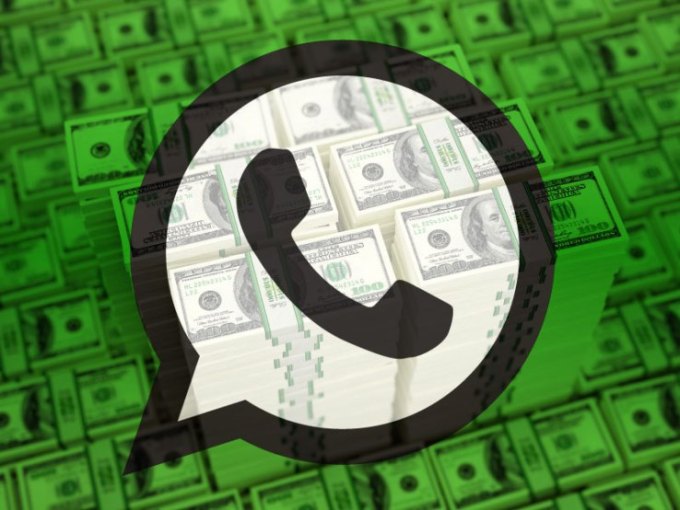 Facebook’s $19 billion acquisition of WhatsApp sounds smarter and smarter. Today CEO Mark Zuckerberg announced on the Q4 2017 earnings call that WhatsApp now has 1.5 billion users and sees 60 billion messages sent per day. That’s compared to 1.3 billion monthly users and 1 billion daily active users in July. The massive growth makes Facebook’s choice to pay over $19 billion… Read More
Facebook’s $19 billion acquisition of WhatsApp sounds smarter and smarter. Today CEO Mark Zuckerberg announced on the Q4 2017 earnings call that WhatsApp now has 1.5 billion users and sees 60 billion messages sent per day. That’s compared to 1.3 billion monthly users and 1 billion daily active users in July. The massive growth makes Facebook’s choice to pay over $19 billion… Read More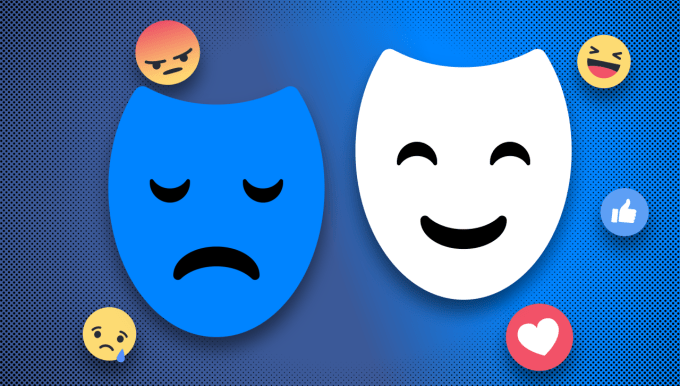 Facebook is putting its short-term money where it’s mouth is, reducing the presence of viral videos in an effort to boost well-being of users of its site. Today in Facebook’s Q4 2017 earnings report CEO Mark Zuckerberg announced that “Already last quarter, we made changes to show fewer viral videos to make sure people’s time is well spent. In total, we made changes…
Facebook is putting its short-term money where it’s mouth is, reducing the presence of viral videos in an effort to boost well-being of users of its site. Today in Facebook’s Q4 2017 earnings report CEO Mark Zuckerberg announced that “Already last quarter, we made changes to show fewer viral videos to make sure people’s time is well spent. In total, we made changes… 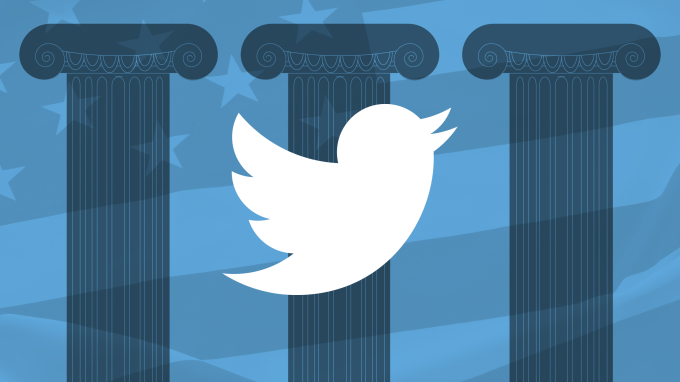 Twitter has now updated the number of people engaging with Russian trolls during the 2016 presidential campaign to 1.4 million. That’s more than double the initial 677,775 Twitter originally said had seen, followed or retweeted one of these accounts earlier this month. The new number reflects those who may have also replied to or @ mentioned these accounts. “We have expanded the…
Twitter has now updated the number of people engaging with Russian trolls during the 2016 presidential campaign to 1.4 million. That’s more than double the initial 677,775 Twitter originally said had seen, followed or retweeted one of these accounts earlier this month. The new number reflects those who may have also replied to or @ mentioned these accounts. “We have expanded the… 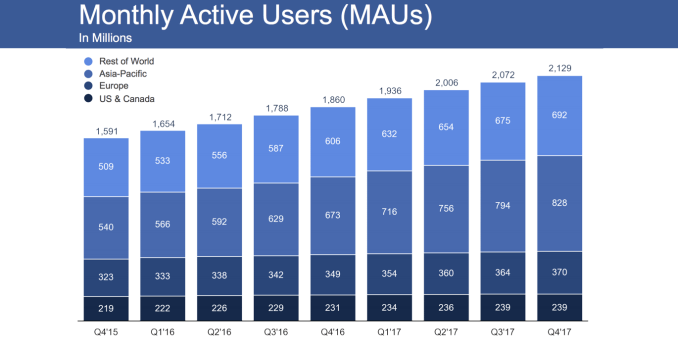 Despite worries about Russia and that passive News Feed scrolling hurts us, Facebook beat expectations again in its Q4 2017 earnings report. Facebook now has 1.4 billion daily users, up 2.18% compared to growing 3.8% to 1.37 billion users in Q3. That’s a sizeable slow down, and the lowest quarter-over-quarter percentage daily user growth ever reported by the company. That could be…
Despite worries about Russia and that passive News Feed scrolling hurts us, Facebook beat expectations again in its Q4 2017 earnings report. Facebook now has 1.4 billion daily users, up 2.18% compared to growing 3.8% to 1.37 billion users in Q3. That’s a sizeable slow down, and the lowest quarter-over-quarter percentage daily user growth ever reported by the company. That could be…  Actress Maisie Williams, best known for her role as Arya Stark on Game of Thrones, is the latest celeb to venture into tech entrepreneurship, with the launch of a new company aimed at connecting creatives, called Daisie. Available later this summer as a mobile app, Daisie will offer a platform where creators can network, like, share and collaborate on projects within a social networking…
Actress Maisie Williams, best known for her role as Arya Stark on Game of Thrones, is the latest celeb to venture into tech entrepreneurship, with the launch of a new company aimed at connecting creatives, called Daisie. Available later this summer as a mobile app, Daisie will offer a platform where creators can network, like, share and collaborate on projects within a social networking… 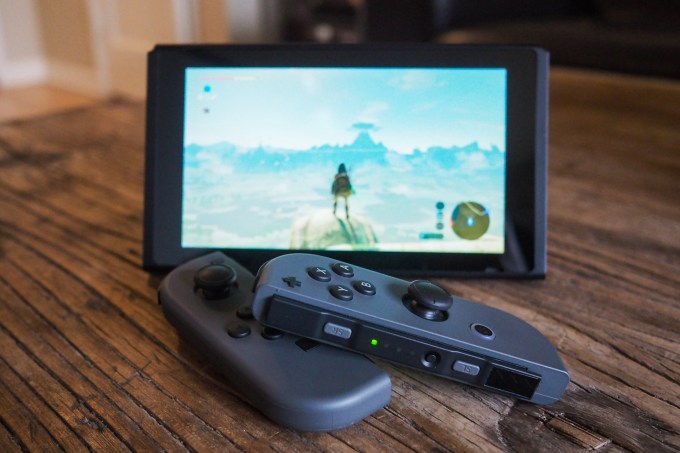 Nintendo’s Switch has only been on sale for 10 months but already it has outsold its predecessor, the Wii U, the flop that heralded Nintendo’s first step into hybrid gaming. The Japanese tech giant shifted a little over 13.5 million Wii U consoles across its entire lifecycle, and today Nintendo revealed that the Switch has reached 14.86 million sales to date. Business was so…
Nintendo’s Switch has only been on sale for 10 months but already it has outsold its predecessor, the Wii U, the flop that heralded Nintendo’s first step into hybrid gaming. The Japanese tech giant shifted a little over 13.5 million Wii U consoles across its entire lifecycle, and today Nintendo revealed that the Switch has reached 14.86 million sales to date. Business was so…  A new vertical fund from pan-European VC firm Speedinvest is officially outing today. Dubbed “Speedinvest x” and targeting a final closing of €25 million, of which €20.5 million has already been committed, the micro VC fund will target early-stage marketplace startups exclusively.
A new vertical fund from pan-European VC firm Speedinvest is officially outing today. Dubbed “Speedinvest x” and targeting a final closing of €25 million, of which €20.5 million has already been committed, the micro VC fund will target early-stage marketplace startups exclusively. 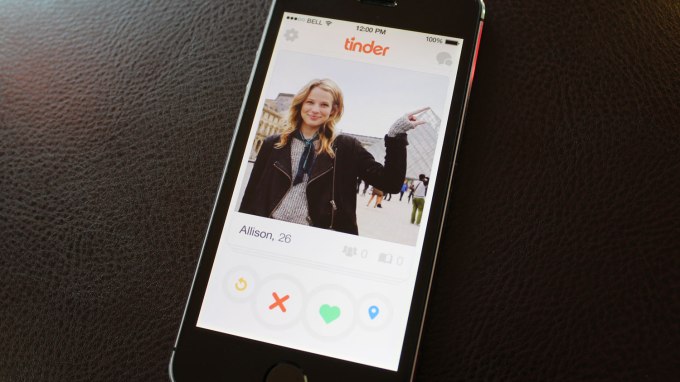 A California appeals court has sided with Allan Candelore, a man suing Tinder over the pricing for its premium service, Tinder Plus. Specifically, Candelore and his lawyers argued that by charging $9.99 per month if a user is under 30, versus $19.99 per month if you’re 30 or older, Tinder is discriminating based on age, in violation of the Unruh Civil Rights Act and the Unfair…
A California appeals court has sided with Allan Candelore, a man suing Tinder over the pricing for its premium service, Tinder Plus. Specifically, Candelore and his lawyers argued that by charging $9.99 per month if a user is under 30, versus $19.99 per month if you’re 30 or older, Tinder is discriminating based on age, in violation of the Unruh Civil Rights Act and the Unfair…  What if you could look down and see your actual arms and legs inside VR, or look at other real-world people or objects as if you weren’t wearing a headset? Imverse’s team spent five years building this incredible technology at universities in Switzerland and Spain. “We were working on this before Oculus was even created” says co-founder Javier Bello Ruiz. Now its…
What if you could look down and see your actual arms and legs inside VR, or look at other real-world people or objects as if you weren’t wearing a headset? Imverse’s team spent five years building this incredible technology at universities in Switzerland and Spain. “We were working on this before Oculus was even created” says co-founder Javier Bello Ruiz. Now its… 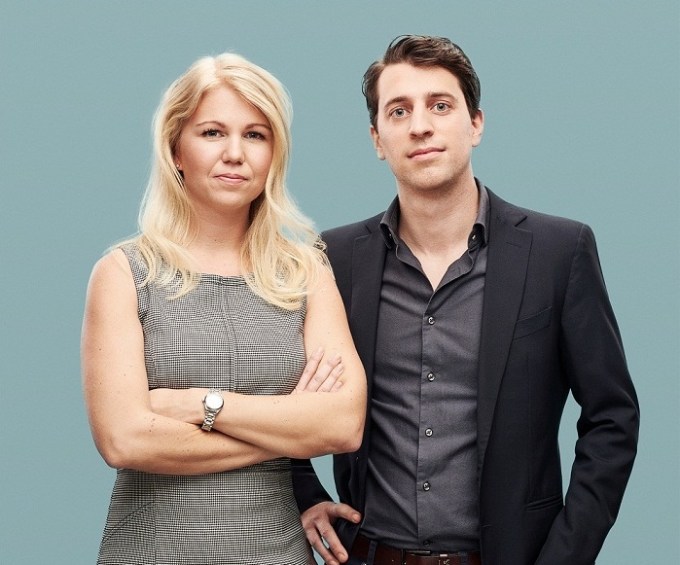 Is there such a thing as bad publicity? It’s an interesting and contested question. To wit: Self styled ‘digital contraception’ app, Natural Cycles — which relies on a set of proprietary algorithms and women inputting their morning body temperature to predict fertility levels each day — has claimed that negative headlines generated after a clinic reported a number…
Is there such a thing as bad publicity? It’s an interesting and contested question. To wit: Self styled ‘digital contraception’ app, Natural Cycles — which relies on a set of proprietary algorithms and women inputting their morning body temperature to predict fertility levels each day — has claimed that negative headlines generated after a clinic reported a number…  Instagram today made a long overdue change to its product that social media managers have wanted for some time – it will allow businesses on Instagram to schedule their posts. Before, there were unofficial means to aid with this – like tools that would send out a push notification to remind you to publish a post at a given time, for example. But no functionality was available in…
Instagram today made a long overdue change to its product that social media managers have wanted for some time – it will allow businesses on Instagram to schedule their posts. Before, there were unofficial means to aid with this – like tools that would send out a push notification to remind you to publish a post at a given time, for example. But no functionality was available in…  Yet another defeat in the courts for the UK government’s use of mass surveillance as an indiscriminate and, as it frequently turns out, unlawful investigatory tool.
Yet another defeat in the courts for the UK government’s use of mass surveillance as an indiscriminate and, as it frequently turns out, unlawful investigatory tool.  Shadow of the Colossus is one of those games I’ve purchased multiple times on multiple platforms, because the original was about as unique and satisfying a video game experience as you can find. But the new PlayStation 4 remake of the Team ICO standout, which recreates the game in stunning 4K HDR, is that rare remake that proves a better and more satisfying experience than the…
Shadow of the Colossus is one of those games I’ve purchased multiple times on multiple platforms, because the original was about as unique and satisfying a video game experience as you can find. But the new PlayStation 4 remake of the Team ICO standout, which recreates the game in stunning 4K HDR, is that rare remake that proves a better and more satisfying experience than the…  Now you can customize your Snapchat Bitmoji avatar with 40 skin tones, 50 hair colors, 50 hair treatment options and more so it looks just like you no matter what you look like. Today Snapchat launches Bitmoji Deluxe, a more configurable version of its cartoony avatars that embraces the growing diversity of its users. The feature offers an easier front-end builder that instantly previews…
Now you can customize your Snapchat Bitmoji avatar with 40 skin tones, 50 hair colors, 50 hair treatment options and more so it looks just like you no matter what you look like. Today Snapchat launches Bitmoji Deluxe, a more configurable version of its cartoony avatars that embraces the growing diversity of its users. The feature offers an easier front-end builder that instantly previews…  The slings and arrows of outrage keep flying at Facebook. Today a coalition of child health advocates has published an open letter addressing CEO Mark Zuckerberg and calling for the company to shutter Messenger Kids: Aka the Snapchat-ish comms app it launched in the US last December — targeted at the under 13s.
The slings and arrows of outrage keep flying at Facebook. Today a coalition of child health advocates has published an open letter addressing CEO Mark Zuckerberg and calling for the company to shutter Messenger Kids: Aka the Snapchat-ish comms app it launched in the US last December — targeted at the under 13s.  When you reach BlaBlaCar’s scale, you need to find customers who are hard to reach — literally. The French company announced an effort to optimize its ride-sharing for long-distance rides for people who don’t live in major hubs. BlaBlaCar now has 60 million users. When you list a ride on BlaBlaCar, you tell the service where you’re coming from and where you’re going.
When you reach BlaBlaCar’s scale, you need to find customers who are hard to reach — literally. The French company announced an effort to optimize its ride-sharing for long-distance rides for people who don’t live in major hubs. BlaBlaCar now has 60 million users. When you list a ride on BlaBlaCar, you tell the service where you’re coming from and where you’re going. 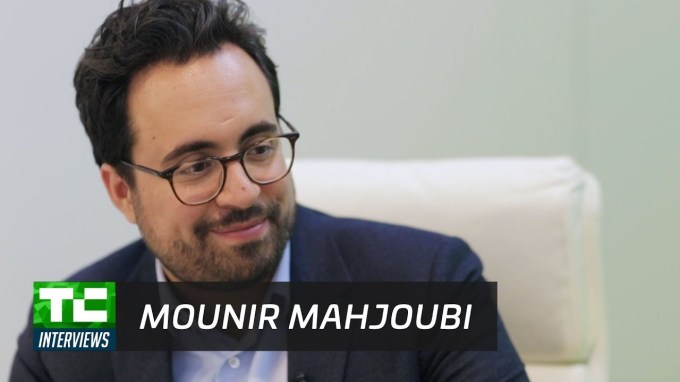 Mahjoubi joined Emmanuel Macron’s team as the person in charge of all things digital while Macron was campaigning to become France’s President. He joined the French government immediately after the 2017 election and has been in charge of Digital Affairs. In addition to being the go-to policymaker for the tech industry in general, he’s also working on digital initiatives…
Mahjoubi joined Emmanuel Macron’s team as the person in charge of all things digital while Macron was campaigning to become France’s President. He joined the French government immediately after the 2017 election and has been in charge of Digital Affairs. In addition to being the go-to policymaker for the tech industry in general, he’s also working on digital initiatives…  French startup Spendesk just raised $9.9 million (€8 million) from Index Ventures with Michael Benabou, Laurent Asscher and Showpad cofounders Louis Jonckheere and Pieterjan Bouten also participating. Spendesk is a service that combines prepaid cards with an expense report solution. After signing up, each employee receives a personal card. Companies can top up their global Spendesk account…
French startup Spendesk just raised $9.9 million (€8 million) from Index Ventures with Michael Benabou, Laurent Asscher and Showpad cofounders Louis Jonckheere and Pieterjan Bouten also participating. Spendesk is a service that combines prepaid cards with an expense report solution. After signing up, each employee receives a personal card. Companies can top up their global Spendesk account… 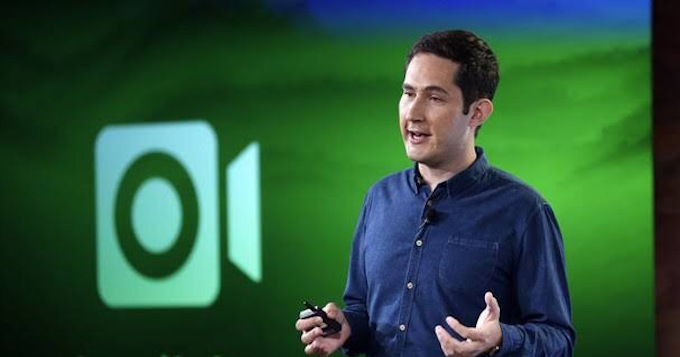 Instagram copied the ‘Snap’ and now it might be going after the ‘chat’. A video calling feature was spotted in an non-public version of Instagram by WhatsApp industry blog WABetaInfo. It would let users who’ve begun an Instagram Direct message thread to video chat with each other. That could let users spend even more time in the app, but by actively…
Instagram copied the ‘Snap’ and now it might be going after the ‘chat’. A video calling feature was spotted in an non-public version of Instagram by WhatsApp industry blog WABetaInfo. It would let users who’ve begun an Instagram Direct message thread to video chat with each other. That could let users spend even more time in the app, but by actively… 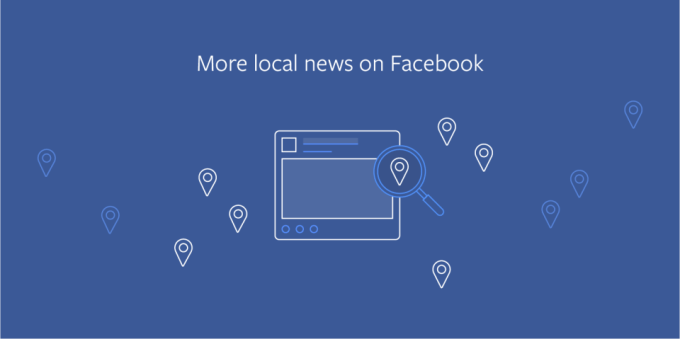 Facebook’s latest step in its on-going effort to fix its embattled news delivery offering involves prioritizing local sources. The social media giant announced today in a blog post that, along with efforts to elevate content from friends and outlets designated as “high quality,” the site will be working to push local news offerings to the top of users’ feeds. The…
Facebook’s latest step in its on-going effort to fix its embattled news delivery offering involves prioritizing local sources. The social media giant announced today in a blog post that, along with efforts to elevate content from friends and outlets designated as “high quality,” the site will be working to push local news offerings to the top of users’ feeds. The…